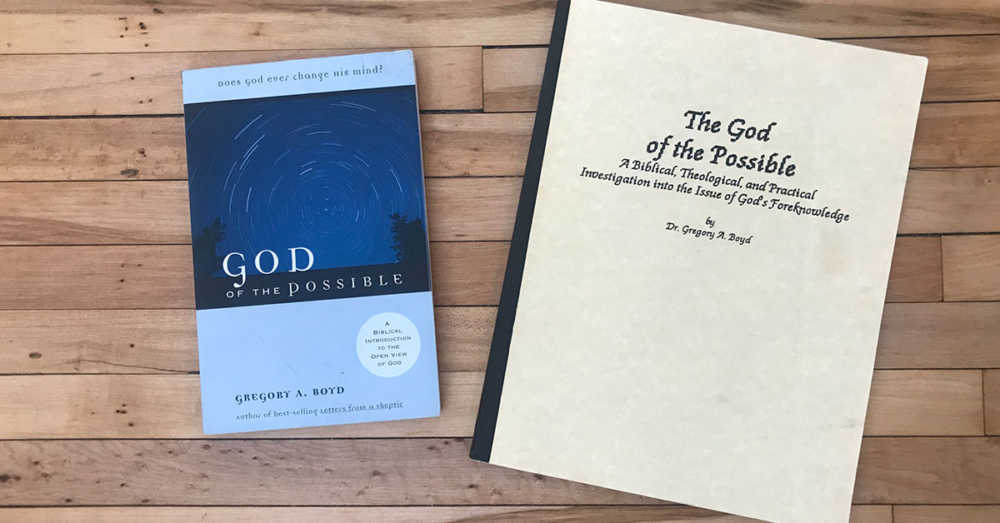We run our website the way we wished the whole internet worked: we provide high quality original content with no ads. We are funded solely by your direct support. Please consider supporting this project.
Podcast: The Making of God of the Possible
Greg talks about making his book “God of the Possible,” then offers his initial thoughts on Thomas Oord’s book “God Can’t.”

Send Questions To:
Dan: @thatdankent
Email: askgregboyd@gmail.com
Twitter: @reKnewOrg
Greg’s new book: Inspired Imperfection
Dan’s new book: Confident Humility
Subscribe:
Category: ReKnew Podcast
Tags: God of the Possible, Open Future, Open Theism
Related Reading

Podcast: Do Open Theists Believe that God EVER Intercedes Directly in the World?
Greg considers God’s intervention in light of human prayer, and discusses the covenant of non-coercion. http://traffic.libsyn.com/askgregboyd/Episode_0122.mp3 [3] Swain, 40. Photo via Ted Van Peltflickr.com

How do you respond to Romans 8:29?
“For whom he foreknew he also predestined to be conformed to the image of his Son, in order that he might be the firstborn within a large family.” One of the greatest treasures given to believers when they open their hearts to the Lord is the promise that they shall certainly be “conformed to the…

Does God Intervene?
The Open View of the future recognizes the vast influence of all the angelic and human wills God created, which, in turn, influences the various outcomes and circumstances in life. Therefore life is arbitrary because of the way the decisions made by an unfathomably vast multitude of free agents intersect with each other. How life…

How can we determine what is and is not “open” about the future?
Question: You believe that the future is partly open. You’re writing has pretty much convinced me this is true, but I’ve still got some serious questions about it. For example, how does anyone determine what part is open and what part is not? If we can’t determine what is and is not open, isn’t the…

What is the significance of Amos 7:1–6?
The Lord revealed a judgment he was planning to bring on Israel to Amos in a vision. Amos prayed “O Lord God, forgive, I beg you!” (vs. 2). Scripture declares that, “The Lord relented concerning this; ‘It shall not be,’ said the Lord” (vs. 3). The Lord then showed Amos another fierce judgment he was…

The Case for Including Open Theism Within Arminianism
Here is an excellent post by my good friend Roger Olson in which he makes the case that Open Theism should be embraced by Arminians as an orthodox, if somewhat non-traditional, form of their faith. In fact, Roger argues (rightly in my opinion) that Open Theism is much closer to the “heart” of Arminianism than…



